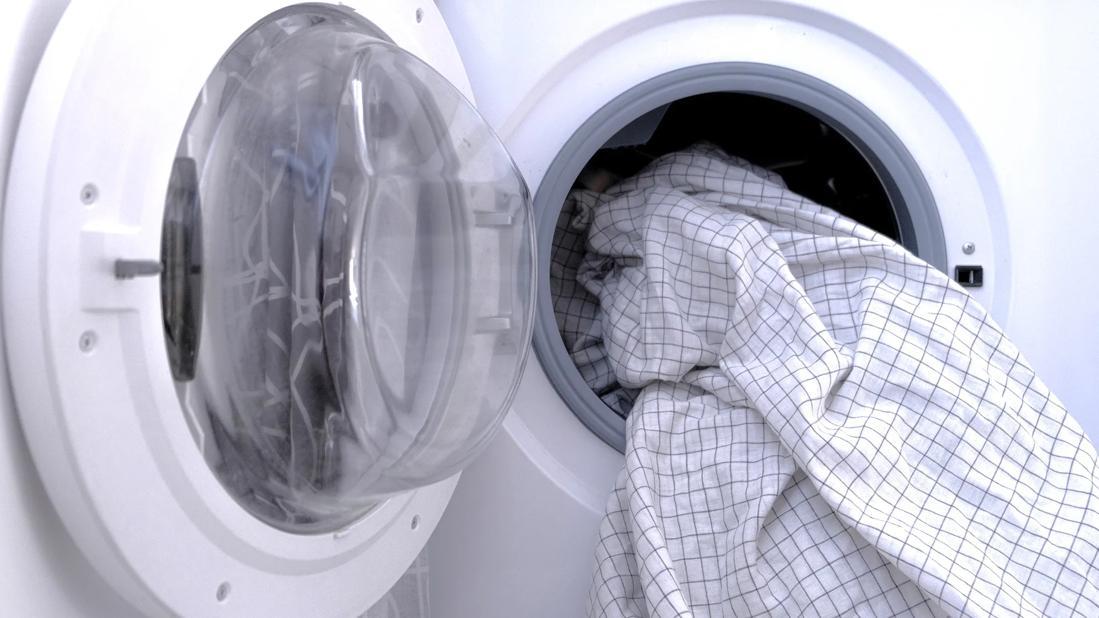How Often You Should Wash Your Sheets
You’re sharing your sheets with dust mites, bacteria and lots of dead skin, so you’ll want to keep your bedding fresh

The reality is, you’re never really sleeping alone. Joining you in bed are countless dust mites and bacteria, not to mention lots of your own dead skin cells. And if you’ve been outside at all, you’re likely bringing allergens into your bed, too.
Medical experts advise washing your sheets at least once a week, says dermatologist Sean McGregor, DO. Pillows and blankets don’t need to be washed as often, but cleaning them at least every few months limits the amount of germs and other microscopic organisms you face when you’re asleep. Plus, you may want to wash these items more often during hotter months, especially if you have pets.
What’s living on your bed sheets?
We spend a lot of time in bed, and that means our sheets become a general breeding ground for:
- Dust mites
- Dead skin
- Sweat and body oils
- Dirt
- Bacteria
- Allergens (like dust and pet dander)
According to Dr. McGregor, the average person sheds a gram and a half of keratinocytes (largely made up of the protein keratin) daily. Visually speaking, that’s almost half a teaspoon full of dead skin.
“Any kind of friction will chafe off the outer layer of your skin cells,” he says, “so, a lot of it is shed when you’re making contact with your sheets in your bed at night.”
Those dead skin cells resting in your sheets and on your mattress and pillows act as a breeding ground for bacteria.
“Bacteria love skin so much that there are actually more bacterial organisms in our bodies than we have cells,” he adds. And the skin is one of bacteria’s most commonly inhabited areas.
Factors that influence how often you need to wash your sheets
Exposing your skin to all the invisible organisms in your sheets can cause problems like rashes and eczema. And how often you need to wash or change your sheets becomes even more important when:
- You have asthma or allergies
- You sweat a lot
- It’s hot or humid
- You let your pets sleep in your bed
- You’re recovering from an illness or infection
- You sleep naked
Signs you should wash your sheets
Your sheets might seem clean on the surface, but looks can be deceiving. Sure signs you should wash them include:
- Fading or discoloration
- Feeling your sheets are sticky, slimy or grimy
- Visible stains
- Sweat marks
- Odors and unpleasant smells
- The presence of crumbs, dirt, bugs and other foreign objects that irritate your skin
Benefits of clean sheets
Washing or changing your sheets at least once a week provides you a safe place to rest without having to worry about what’s crawling on your skin. But Dr. McGregor says even washing your sheets every other week provides a number of benefits, like:
- Improving your sleep quality
- Regulating your temperature (cold, soft sheets help you stay cool while you sleep)
- Reducing allergy symptoms
- Reducing discomfort
- Removing or avoiding odors and stains
- Ensuring healthier, cleaner skin
- Providing a sense of comfort
How to keep your bed as clean as possible
So, what does it take to keep your sheets clean and free of debris? Dr. McGregor provides these tips:
- Change your bedding regularly. Swap out your sheets for clean ones every one to two weeks. Everything else (like your comforter, pillows, etc.) can be washed every six months or as needed. If you have a pet, you’ll need to clean your bedding more often. And if you have an illness or infection, or your allergies strike, take that opportunity to wash your bedding again.
- Wash with hot water. It’s best to use hot water when washing your sheets. The heat kills off dust mites and helps get everything thoroughly clean.
- Don’t make your bed first thing in the morning. Consider this your excuse to leave the bed unmade for at least a little while. Give sweaty sheets a chance to dry by not pulling up your comforter ASAP. “This will reduce the moisture that dust mites and bacteria need to flourish,” Dr. McGregor explains.
- Clean your mattress. Like your pillows and comforters, make sure you clean your mattress every six months or so. Use a vacuum to remove any debris and sweep the entire surface clean of any dust mites or dead skin cells. Then, spot-clean any stains with a mild detergent.
It’s easy to think of washing sheets and keeping fresh bedding as a chore. But if you keep up with it, it starts to feel great when you have a fresh, clean bed to slide into.
“The washing process fluffs your pillow and distributes your blanket’s filling more evenly,” Dr. McGregor notes. “That’s helpful for making your pillows and blankets as comfortable as possible for their whole life.”